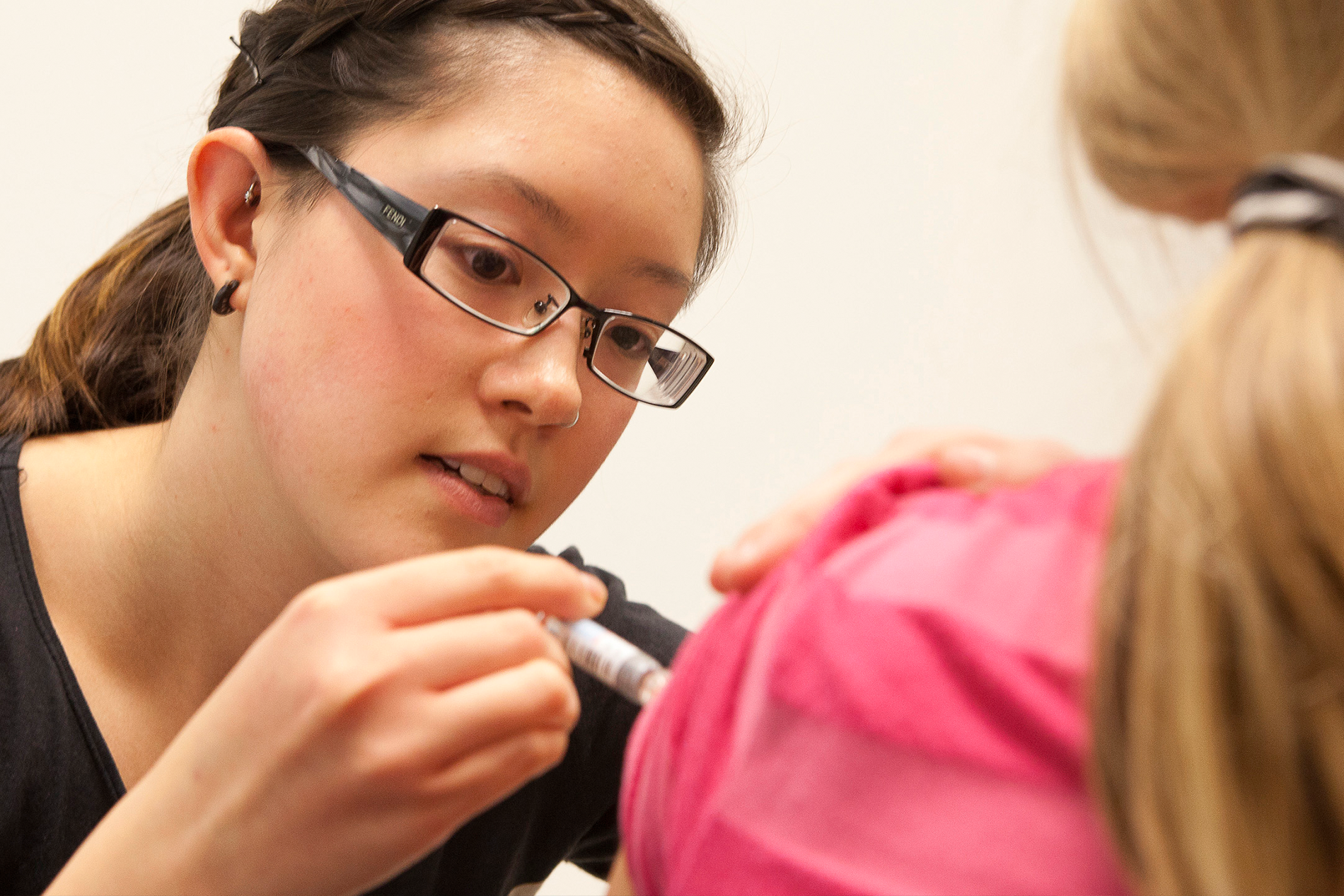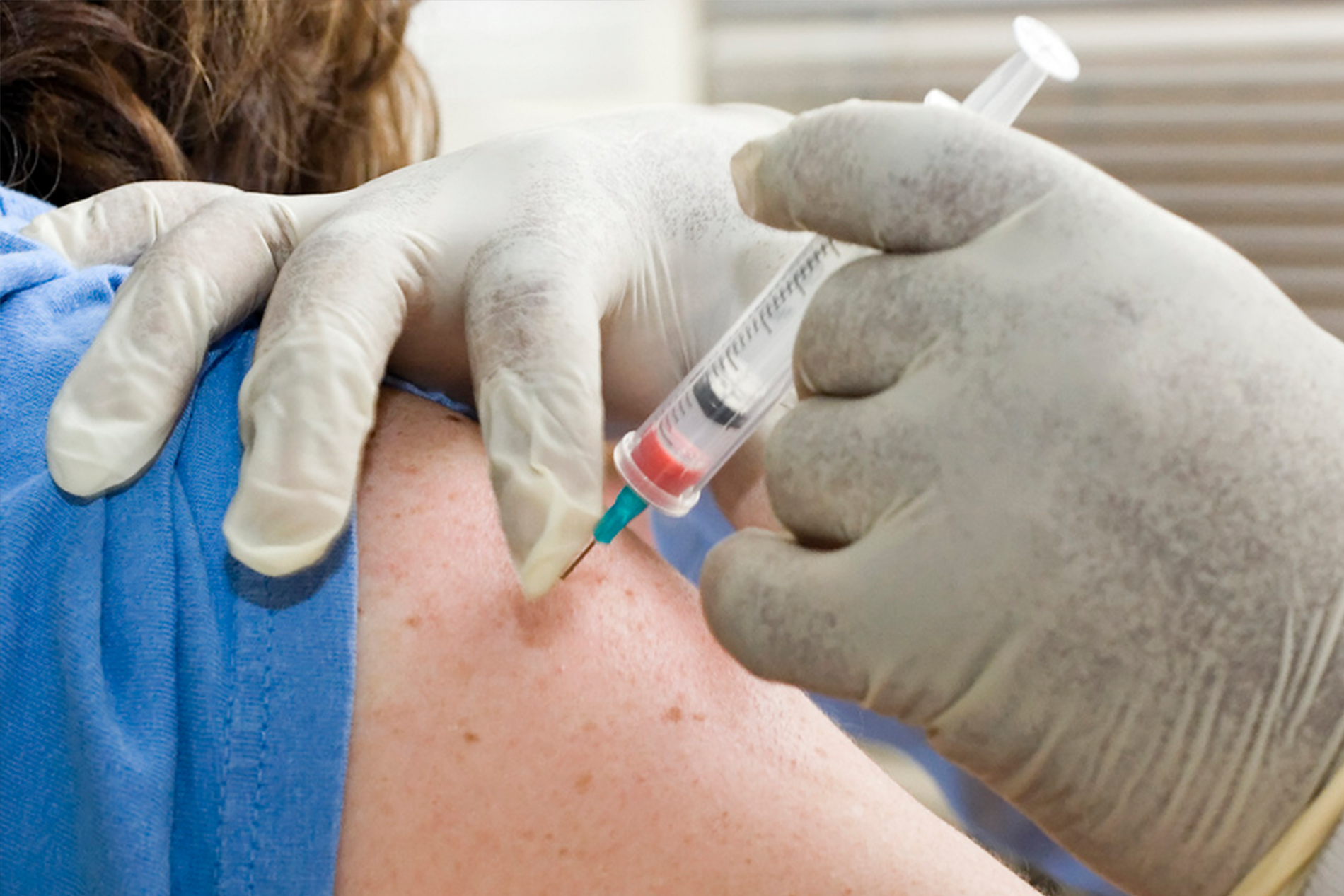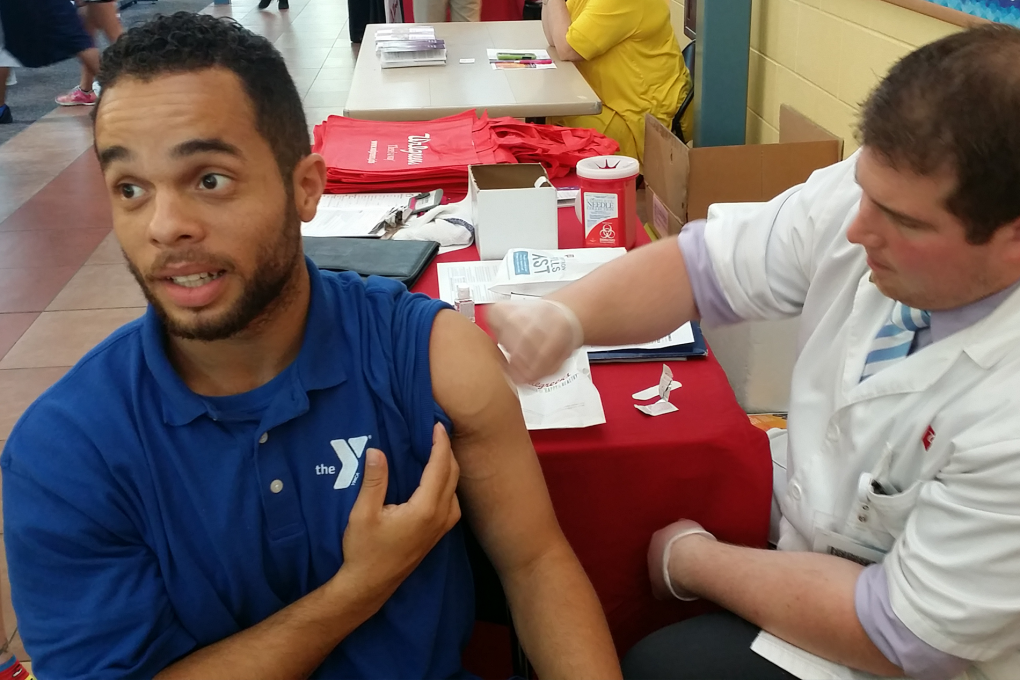The Centers for Disease Control and Prevention estimates that the flu has caused between 12,000 and 61,000 deaths annually since 2010. So it’s always serious business.
But this year, amid the coronavirus pandemic, it’s especially crucial to do everything you can to stay flu-free. Especially as officials are already warning that a severe flu season could overwhelm California hospitals that are preparing for an uptick in COVID-19 cases as the economy further reopens.
Getting your flu shot is the best, safest way to not only protect yourself against the influenza virus, but also to minimize the chance you will spread it to others — folks who could be at far higher risk for serious complications or even death if they were to become infected.
In a recent press conference announcing the availability of free flu shots in Santa Clara County, county Executive Officer Dr. Jeff Smith issued a reminder that the flu vaccine will not protect against the coronavirus that causes COVID-19. But what the flu vaccine will do, he said, “is prevent you from ending up in the hospital,” which will help ensure that beds are available for COVID-19 patients.
Read on to find out if you should be getting your flu shot right now, and where to find free or low-cost flu shot options near you.
Should you get a flu shot now, or wait?
The recommendations medical professionals make about when to get a flu shot are based on the fact that it takes about two weeks after you get vaccinated for antibodies to develop and provide protection against the flu, says UCSF professor of medicine Dr. Peter Chin-Hong.
The CDC recommends that you plan to get your flu shot “early in fall, before flu season begins,” and definitely by the end of October.

There is evidence, Chin-Hong says, that your risk of getting the flu increases every month after your flu shot, due to the antibodies waning over time. (Dr. Anthony Fauci, director of the National Institute of Allergy and Infectious Diseases, recently said he gets his shot “towards the middle and end of October” because of this diminishing immunity.)
But when medical professionals talk about strategically “waiting” to get a flu shot, says Chin-Hong, they’re aiming that advice at those who are at particularly high risk for more serious complications related to the flu. That includes people over 65, those with chronic medical conditions, women who are pregnant or planning a pregnancy, and kids under 5.
Delaying inoculations for these populations is based on the idea of getting the shot at a time Chin-Hong calls “the sweet spot,” around mid-to-late October. Two weeks later, right around early November, the antibodies should have developed, just as flu season is getting serious. Think of it as getting the “biggest bang for your buck,” he said.
So if you’re in one of those vulnerable categories? Yes, you can think about waiting, says Chin-Hong. People over 65 might also consider requesting the special flu vaccines for this age group, which contain four times the dosage of antigens that trigger the production of antibodies. But ultimately, he says, “Don’t hem and haw about when to get it,” — because there’s a risk you may wind up forgetting to get it at all. ”
And if you do delay and change your mind, or just forget, that shouldn’t stop you from getting the shot at a later date in the flu season, he says. Chin-Hong references a recent UCSF study that found just one-third of 437,000 Americans interviewed in an annual survey reported getting a flu shot from 2017-19. So, anytime is better than no time.
Santa Clara’s Dr. Jeff Smith also pointed out in his press conference that the longer you wait to get your flu shot, the more unprotected exposure to the virus you’ll put yourself through. So get your flu shot “as early as you possibly can,” he said, because “waiting only means that you have a higher likelihood of getting the flu.”

Where can I get a flu shot if I have insurance?
If you have health insurance, a flu shot is available free without cost as a preventive service from your usual doctor, or most pharmacies. (See below.)
Make sure you’re wearing your mask, maintain social distancing wherever possible while waiting for your shot, and dress in a top with sleeves you can easily pull up to your shoulder, to make receiving the injection even easier (and quicker.)
Common places to find a flu shot appointment, walk-in site or drive-thru flu shot:
- CDC’s Vaccine Finder tool
- Kaiser Permanente flu shots (Northern California)
- CVS flu shots
- Walgreens flu shots
- Costco Pharmacy flu shots
Where can I get a flu shot if I don’t have health insurance?
If you want a flu shot but don’t have health insurance, you can get the vaccine free of charge from several providers and community clinics around the Bay Area. (You can also technically use these free services even if you do have insurance, but you may consider choosing to free up these particular resources for those who are not covered.)
For a start, your county’s own public health department might offer them. For example, Santa Clara County is now offering free flu shots at the County Fairgrounds in San Jose, every Saturday until mid-December.
Anyone can walk or bike up to the fairgrounds (parking is also available for those with disabilities) without an appointment and get vaccinated, regardless of insurance or immigration status; you only need to wear a mask. Free flu shots are also available from the county at the Valley Health Centers in San Jose and Sunnyvale.
More info here.
Places to get a free or low-cost flu shot in the Bay Area include:
- San Francisco Public Health’s AITC Clinic (offers a pay-what-you-can option, and says that nobody will be refused for inability to pay)
- Contra Costa Public Health Immunization Clinic (flu shots are $15 for adults over 19, but fees may be waived if you’re unable to pay)
- Alameda County Immunization Clinics

